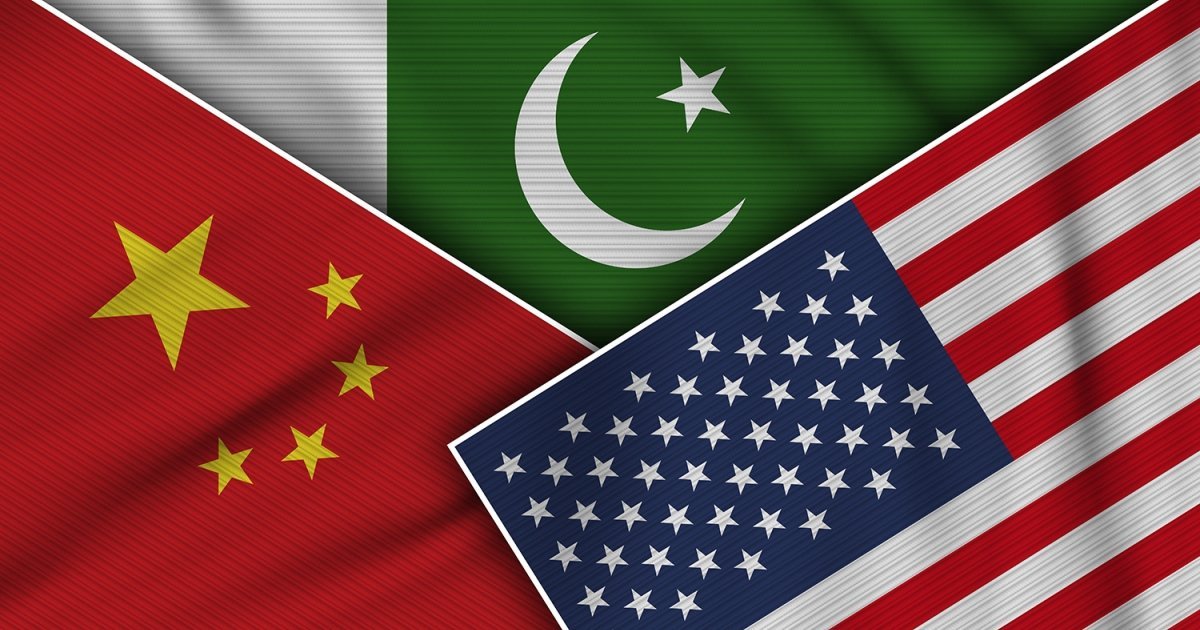The growing rivalry between China and the United States is one of the distinguishing features of the international order of the twenty-first century. This rivalry presents Pakistan with significant strategic difficulties at the intersection of Central Asia, the Middle East, and South Asia. From trade conflicts to technological competitiveness, military modernization, and Indo-Pacific alliances, Washington and Beijing are engaged in a multifaceted conflict. This competition actually limits Islamabad’s economic capacity, diplomatic options, and strategic actions.
In fact, in contrast to other nations, Pakistan maintains a high profile in its diplomacy while balancing these two diametrically opposed extremes in a polarization that is significantly increasing. China reportedly reaffirmed its long-standing friendship with Pakistan in response to Washington’s increased engagement with Islamabad at the highest levels. Instead of siding with one party, Islamabad might gain the respect and, more crucially, the attention of both, which would allow it greater diplomatic and strategic flexibility.
Pakistan is commended for successfully reestablishing diplomatic relations within the year. When Trump met with Prime Minister Shehbaz Sharif and Chief of Army Staff General Asim Munir, he praised Pakistan, a move that underlined the long-awakened American understanding of Pakistan’s importance. Meanwhile, Beijing reiterated that Pakistan remained a reliable partner and ally in its goal of regional peace and progress. In an interview with Mehdi Hasan, Defense Minister Khawaja Asif boldly asserted that China and Pakistan have an all-weather relationship that dates back to the late 1950s and that China holds the key to Pakistan’s strategic destiny. However, the fact that one declaration may coexist with friendly American overtures demonstrates Pakistan’s exceptional capacity to have goodwill on both sides of a conflict.
China and the United States are strategic rivals in a number of areas, such as trade, technology, cyberspace, global governance, and Asian regional dominance. Pakistan, which must manage its relations with both powers while tackling its own economic issues, may periodically feel the strain of this rivalry. Beijing and Washington occasionally try to align Islamabad with their own geopolitical objectives, but Pakistan has made it clear that its goal is to serve as a bridge rather than a pawn. While still depending on the United States for assistance in counterterrorism and regional stability in Afghanistan, Pakistan has pursued Chinese investment in energy and infrastructure through the China-Pakistan Economic Corridor.
A small difference might upset the whole balance. Although Islamabad plays a somewhat pro-Chinese stance, the nation retains its capital closely involved in US-related affairs. The United States remains skeptical of Pakistan’s support for Beijing. Economic vulnerabilities might make things worse.
Read More: Pakistan Reaffirms Balanced Relations with US and China
The IMF program and Chinese support do play a role in reducing the nation’s vulnerability to external threats. India’s path toward the Washington model in the US prevents Pakistan from moving much closer to equidistance, and the unrest in Afghanistan may damage Islamabad’s reputation as a stabilizing power. It would be necessary to constantly prepare, maneuver, and have a strong national base in order to keep switching between the two superpowers.
Above all, Pakistan must make any preplanning procedures that start with the rationalization of balanced foreign policy more transparent. Instead of trying to solve every problem on its own, Islamabad needs to embrace a clear institutional order to comprehend the US-China dynamic with regard to changes in its positioning. The promotion of economic diplomacy would be the second goal. While CPEC will remain the primary corridor defining that economy, Pakistan should aggressively pursue US investments and market access for resilience. Strategic communication is the third area of concern.
In Beijing or Washington, it should portray its policies as framed by inclusive partnerships rather than exclusive alliances. Fourth, Islamabad should actively engage in multilateral forums. Broad participation in organizations such as the United Nations, the Shanghai Cooperation Organization (SCO), and others would significantly enhance its reputation as a promoter of stability. Finally, Pakistan must preserve its independence. Maintaining a robust economy and a strong defense posture will allow the country to withstand external pressures and ensure long-term benefits from its balancing efforts.
It is anticipated that Beijing and Washington would continue to be strategic adversaries for many decades to come. This rivalry can force many nations to make difficult decisions and impose restrictions. However, this rivalry confronts Pakistan with both opportunities and challenges. Islamabad’s constant and positive engagement with the two powers has allowed it to expand its diplomatic and strategic space.
Even while the United States, under former President Trump, continued to acknowledge Pakistan’s strategic significance for regional stability, China has consistently strengthened its unending cooperation throughout the years. China is crucial to Pakistan’s strategic future, Defense Minister Khawaja Asif reaffirmed that Islamabad must maintain its foreign policy independence while maximizing the benefits of this protracted conflict.
Maintaining this will become more difficult over time. However, with careful management, Pakistan might become one of the very few countries that have good ties to both China and the US without becoming caught up in a fight. It calls for persistence and self-assurance. Pakistan can ensure its future in a world that is becoming increasingly divided by maintaining its long-standing friendship with China and making an effort to interact constructively with the United States.
*The views expressed in this article are the author’s own and do not necessarily reflect the editorial policy of TDI.

Mian Masood Tariq
Mian Masood Tariq is an independent researcher and policy commentator, based in Islamabad. He can be reached at masoodtariqqq@gmail.com



